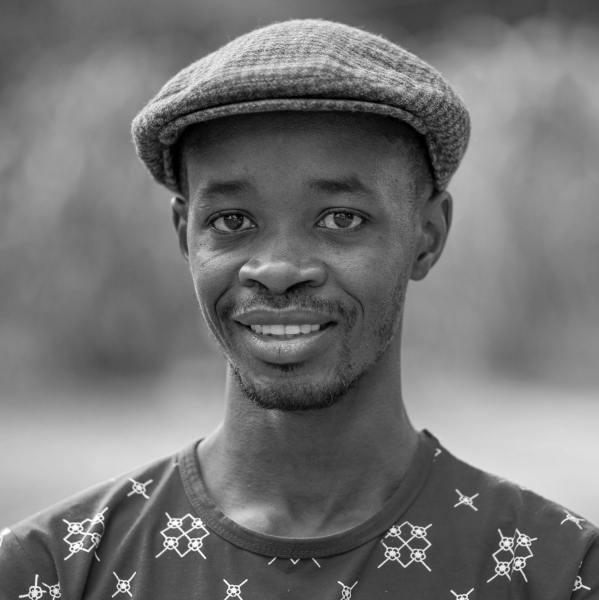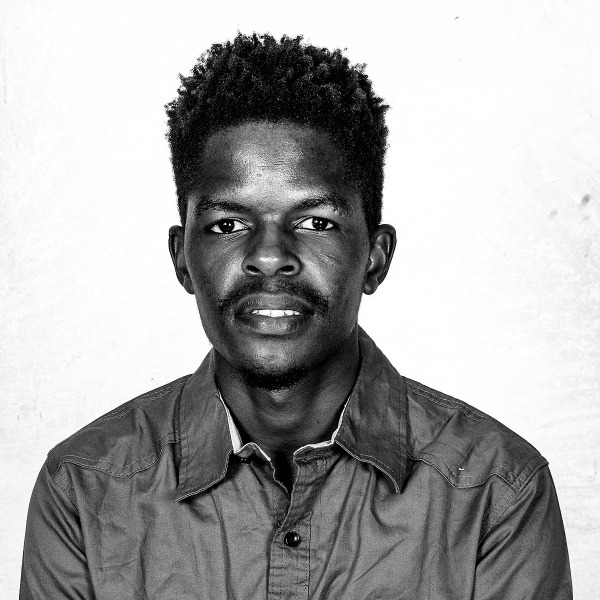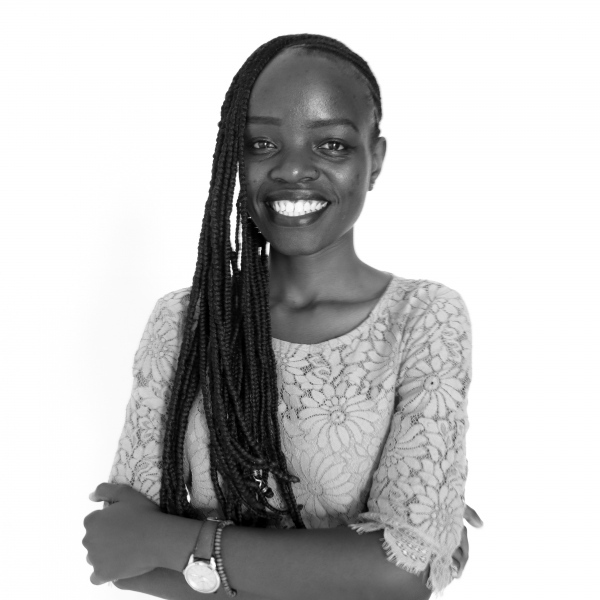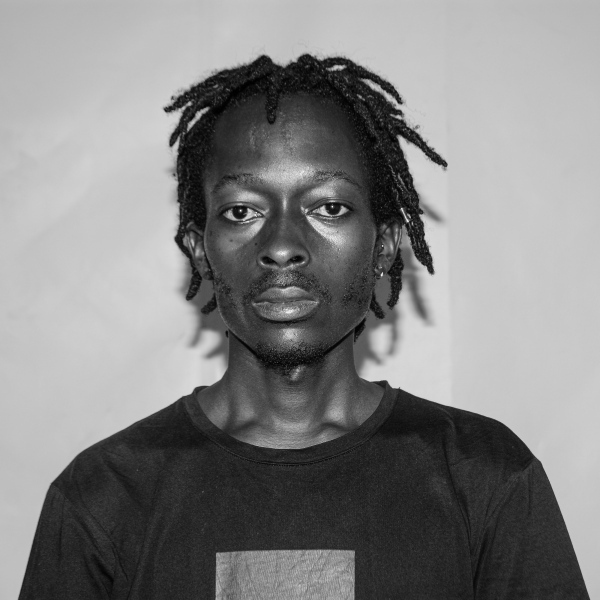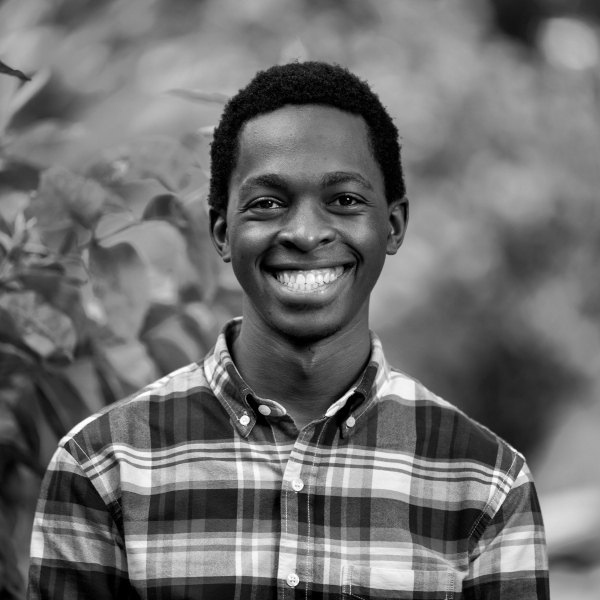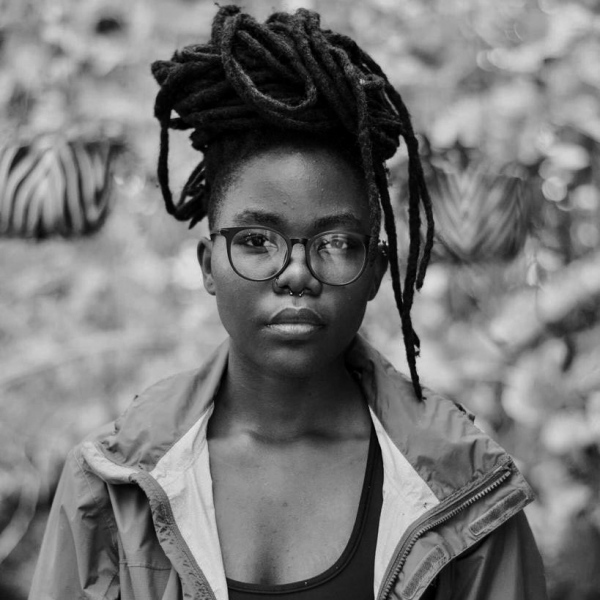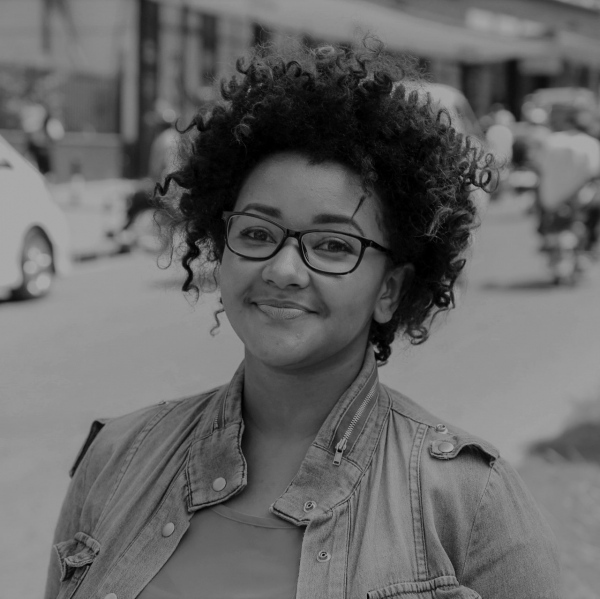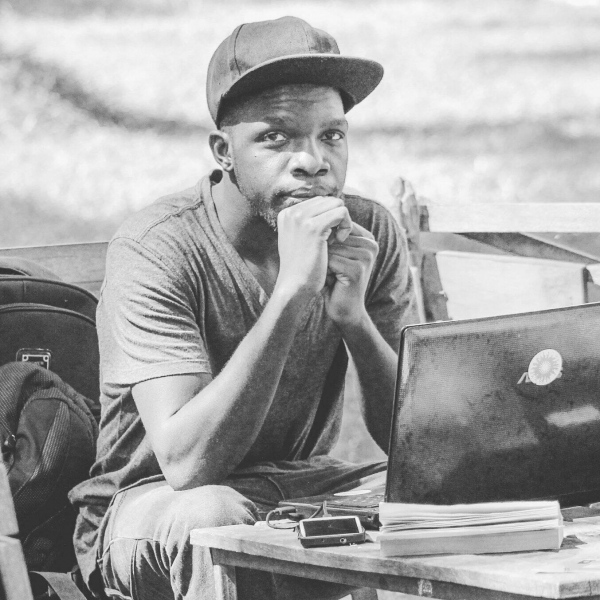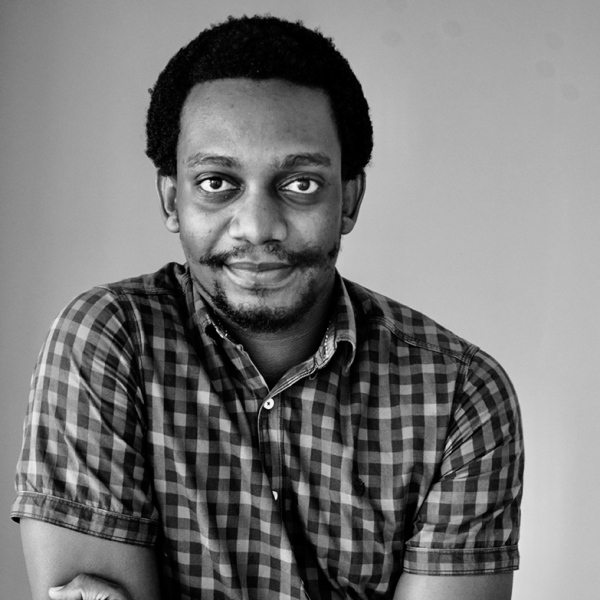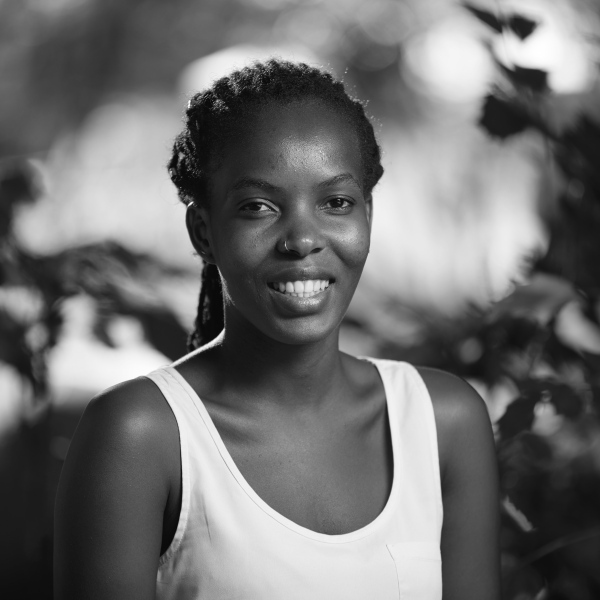MENTORSHIP PROGRAMME
Photographers
Projects
"The Cruelty of the Moon"
by Martina Nalunkuma
Red blood cells are long-lived, magical things designed to carry oxygen from our lungs to the rest of our body’s cells. But for people like me, inheritors of the sickle cell gene, our red blood cells are misshapen. Instead of looking like a doughnut they look like a little red crescent, a sort of blood moon, and they last just two or three weeks before suddenly self-destructing.
GO TO GALLERY
by Martina Nalunkuma
Red blood cells are long-lived, magical things designed to carry oxygen from our lungs to the rest of our body’s cells. But for people like me, inheritors of the sickle cell gene, our red blood cells are misshapen. Instead of looking like a doughnut they look like a little red crescent, a sort of blood moon, and they last just two or three weeks before suddenly self-destructing.
GO TO GALLERY
"Holding Court"
by Timothy Akolamazima
Tennis is not a well-known sport in Uganda. It requires equipment and a well-maintained court with a flat surface, both things that are hard to find and expensive to maintain. The game was brought here during the colonial era by the British, and courts were constructed in many elite spaces including Makerere University and the Kampala Club. A tennis club was also built, situated beside the cricket oval at Lugogo, and it’s still there. But the sport remained largely the preserve of foreigners, at first the whites and later increasingly Asians.
GO TO GALLERY
by Timothy Akolamazima
Tennis is not a well-known sport in Uganda. It requires equipment and a well-maintained court with a flat surface, both things that are hard to find and expensive to maintain. The game was brought here during the colonial era by the British, and courts were constructed in many elite spaces including Makerere University and the Kampala Club. A tennis club was also built, situated beside the cricket oval at Lugogo, and it’s still there. But the sport remained largely the preserve of foreigners, at first the whites and later increasingly Asians.
GO TO GALLERY
"The Herbalist"
by Joshua Victor Semaganda
A herbalist provides medical care in the community they live in by using herbs and other methods based on the cultures and beliefs of their people. After a lifetime of dedication to working with medicinal plants, he or she must be seen to be competent, versatile, experienced and trusted. This story focuses on Wasswa Denis, a 34-year old local herbalist and entertainer, a resident of Kireku area in Bweyogerere, a suburb of Kampala.
GO TO GALLERY
by Joshua Victor Semaganda
A herbalist provides medical care in the community they live in by using herbs and other methods based on the cultures and beliefs of their people. After a lifetime of dedication to working with medicinal plants, he or she must be seen to be competent, versatile, experienced and trusted. This story focuses on Wasswa Denis, a 34-year old local herbalist and entertainer, a resident of Kireku area in Bweyogerere, a suburb of Kampala.
GO TO GALLERY
"Duality: Form and Space"
by Monica Ahairwebyona
Form refers to the shape or configuration of a structure. Space encompasses the volume of a structure that we may move through and experience. Taking a stroll across Kampala’s cityscape to tell our built fabric’s story. It may appear obvious or generic at a careless glance but on taking a closer look with deliberation, you are met with some iconic surprises. These could be attributed to unique designs, ingenious application of material, different ways in which users adapt to their spaces, resilient neighbourhoods, the list goes on.
GO TO GALLERY
by Monica Ahairwebyona
Form refers to the shape or configuration of a structure. Space encompasses the volume of a structure that we may move through and experience. Taking a stroll across Kampala’s cityscape to tell our built fabric’s story. It may appear obvious or generic at a careless glance but on taking a closer look with deliberation, you are met with some iconic surprises. These could be attributed to unique designs, ingenious application of material, different ways in which users adapt to their spaces, resilient neighbourhoods, the list goes on.
GO TO GALLERY
“One in Four”
by Mukiza Calvin JuniorTeenage pregnancy continues to be a major social crisis in many African countries. According to the World Health Organisation, across Sub Saharan Africa the rate of teenage pregnancy is 28%, and one in four Ugandan girls will become a mother before leaving their teens. The global COVID-19 pandemic has worsened conditions for girls in Uganda. According to a report in the national New Vision newspaper, a tragic increase in cases of rape and forced marriage has been observed, apparently caused by the government’s lockdown measures and the effects they had on daily life and economic stability.
GO TO GALLERY
“A Passion for Nature”
by Vanessa Mulondo
In Uganda wildlife conservation has historically been male-dominated. However over the years it has become more open to women, and nowadays they work as rangers, birders, reptile handlers, zookeepers and environmental scientists, though challenges remain. Florence Kyalimpa, an Environmental Impact Assessment Officer working for the Uganda Wildlife Authority says that the main challenge she’s faced so far is trying to juggle family life with work. “My work takes place outside of Kampala- we move from one protected area to another and can spend about two weeks in the field.” There is no provision for her to travel with her children.
GO TO GALLERY
“General Orders”
by Philip Peter KairuDisability in Uganda is seen as a sensitive topic, and often disabled people feel abandoned and neglected, or even feared by people. Disability is defined as being of a condition significantly impaired, relative to the usual standard of an individual or group. For 42 years, Mutuba Pascio was an energetic and hardworking father who, while on break from his job, taught young people how to drive, and interacted with his community whenever he could. He recalls life when he was a bread winner for his family; his wife and children, and being able to do his chores and activities by himself.
GO TO GALLERY
"Surviving Bery: A Girlhood Trauma"
by DeLovie Kwagala
Bernhard ‘Bery’ Glaser, was a German national who illegally operated ‘Bery’s Place’ in Kalangala, on Bugala island in Lake Victoria, Uganda for more than 10 years despite persistent rumors of abuse. Glaser was first arrested in December 2013 on charges relating to child abuse, but he was acquitted due to lack of evidence. Despite this initial arrest he continued to operate a home for girls and young women, where he was responsible for their care and welfare. He was arrested again in February 2019, this time facing 19 counts of aggravated defilement, child trafficking and operation of an illegal children’s home, and it was during this second trial that he died of cancer in May 2020.
GO TO GALLERY
by DeLovie Kwagala
Bernhard ‘Bery’ Glaser, was a German national who illegally operated ‘Bery’s Place’ in Kalangala, on Bugala island in Lake Victoria, Uganda for more than 10 years despite persistent rumors of abuse. Glaser was first arrested in December 2013 on charges relating to child abuse, but he was acquitted due to lack of evidence. Despite this initial arrest he continued to operate a home for girls and young women, where he was responsible for their care and welfare. He was arrested again in February 2019, this time facing 19 counts of aggravated defilement, child trafficking and operation of an illegal children’s home, and it was during this second trial that he died of cancer in May 2020.
GO TO GALLERY
"Keeping Track"
By Zahara Abdul
While the rest of Kampala city is slugging it out on crowded roads and muddy, disintegrating pavements, a small group of the city’s most fortunate citizens glide to work in a manner that, if not perhaps as spacious or as luxurious as it could be, is definitely faster and involves less trouble. These lucky few, passengers on the only commuter train in Uganda, travel 16kms between Namanve and the city for a bargain fee of 1,000/=.
The ticket queues are full of people elbowing each other for an iota of space. Then, once aboard, the train snakes through the filthiest suburbs of Kireka and foul smells waft in from the heaps of garbage on the sides. In the carriages it’s too crowded. Even when the train carries about 600 passengers, it feels like there are three times more people in here, all heading to the city centre.
GO TO GALLERY
"Suburbia Of My Own"
By Gilbert Yoti
I have lived in Kisaasi for nearly two years now, after moving there to be closer to my mum and friends. It’s a suburban neighbourhood with an easy commute to Kampala city centre and most of its inhabitants consider themselves middle class. While there is no definitive description, Uganda’s middle class might be defined as consisting of individuals who are neither wealthy nor poor; they are not at the top or bottom of the social hierarchy, but they aspire to have a certain lifestyle. At first glance, the living standard of Kisaasi might be quickly assumed to be quite similar throughout, and quite high. The area is full of houses with water and electricity, surrounded by high walls and with easy access to supermarkets, shops, bars and restaurants- a typical middle class Ugandan neighbourhood.
GO TO GALLERY
By Gilbert Yoti
I have lived in Kisaasi for nearly two years now, after moving there to be closer to my mum and friends. It’s a suburban neighbourhood with an easy commute to Kampala city centre and most of its inhabitants consider themselves middle class. While there is no definitive description, Uganda’s middle class might be defined as consisting of individuals who are neither wealthy nor poor; they are not at the top or bottom of the social hierarchy, but they aspire to have a certain lifestyle. At first glance, the living standard of Kisaasi might be quickly assumed to be quite similar throughout, and quite high. The area is full of houses with water and electricity, surrounded by high walls and with easy access to supermarkets, shops, bars and restaurants- a typical middle class Ugandan neighbourhood.
GO TO GALLERY
"Moonlighting"
By Andrew Kartende
In most African countries, unemployment and underemployment have continued to rise, and the problem is exacerbated by a large young population, weak national labour markets and persistent poverty. Youth unemployment in Uganda is one of the highest in Africa. Uganda also has the second largest percentage of young people in the whole world. According to Action Aid, in 2012 six in every 10 Ugandans were unemployed. Many lack the skills employers need, but the core problem is that the economy is not expanding as fast as the labour force.
GO TO GALLERY
By Andrew Kartende
In most African countries, unemployment and underemployment have continued to rise, and the problem is exacerbated by a large young population, weak national labour markets and persistent poverty. Youth unemployment in Uganda is one of the highest in Africa. Uganda also has the second largest percentage of young people in the whole world. According to Action Aid, in 2012 six in every 10 Ugandans were unemployed. Many lack the skills employers need, but the core problem is that the economy is not expanding as fast as the labour force.
GO TO GALLERY
"Dream and Realities"
By Miriam Watsemba
I have grown up in a time and space where being a creative was equated to failure at education on many levels. Certain kinds of jobs were more acceptable and respectable than choosing a career as a music artist, a dancer, an actor, a beautician or even a photographer.Many of my contemporaries have had to go to university and pursue a course or take up a ‘serious’ job simply because they were socialized into a certain line and standard of success that comes with a prestigious level of status in society. The emergence of the internet in the 90’s, has however, disrupted this line of orientation. Unlike our parents whom the internet generation has come to label ‘baby boomers,’ and describe as disciples of the system, this generation of youth is exposed, mentally aware and empowered enough to want to venture into the unknown, and explore options outside the prescribed system. With the world becoming increasingly open and globally connected, the options outside the box are unlimited.
GO TO GALLERY
By Miriam Watsemba
I have grown up in a time and space where being a creative was equated to failure at education on many levels. Certain kinds of jobs were more acceptable and respectable than choosing a career as a music artist, a dancer, an actor, a beautician or even a photographer.Many of my contemporaries have had to go to university and pursue a course or take up a ‘serious’ job simply because they were socialized into a certain line and standard of success that comes with a prestigious level of status in society. The emergence of the internet in the 90’s, has however, disrupted this line of orientation. Unlike our parents whom the internet generation has come to label ‘baby boomers,’ and describe as disciples of the system, this generation of youth is exposed, mentally aware and empowered enough to want to venture into the unknown, and explore options outside the prescribed system. With the world becoming increasingly open and globally connected, the options outside the box are unlimited.
GO TO GALLERY
"The Network"
By Stuart Tibaweswa
When you watch the news it all seems so smooth- a presenter presents, then a reporter reports, then the credits and the adverts roll. But behind the scenes there is a machine running 24 hours a day, seven days a week to maintain that illusion of effortless broadcast. The machine is constructed from many different moving parts and characters, chugging along as they strive to deliver content that will keep the audience entertained.
Uganda’s media landscape, though vibrant and fast-paced, is a tough market. Its consumers demand the truth, while the state often finds that same truth inconvenient or unsuitable. The competition is stiff, with barriers to entry dropping as new technologies make slick production more accessible and affordable every day. Journalists often face danger as they carry out their duty of bearing witness in risky places.
GO TO GALLERY
By Stuart Tibaweswa
When you watch the news it all seems so smooth- a presenter presents, then a reporter reports, then the credits and the adverts roll. But behind the scenes there is a machine running 24 hours a day, seven days a week to maintain that illusion of effortless broadcast. The machine is constructed from many different moving parts and characters, chugging along as they strive to deliver content that will keep the audience entertained.
Uganda’s media landscape, though vibrant and fast-paced, is a tough market. Its consumers demand the truth, while the state often finds that same truth inconvenient or unsuitable. The competition is stiff, with barriers to entry dropping as new technologies make slick production more accessible and affordable every day. Journalists often face danger as they carry out their duty of bearing witness in risky places.
GO TO GALLERY
"This Time We Are Young"
by Esther Ruth Mbabazi
The population of Uganda is one of the youngest in the world with an average age of 14. This project follows how young Ugandans spend their free time outside school. We follow three teens- Latif, a young man from Mbale, and two girls, Irene and Aidah, one who comes from the city and one from the village, and examine how their differences change the way they live their lives, by focusing on the activities that make up teenage life after school.
GO TO GALLERY
by Esther Ruth Mbabazi
The population of Uganda is one of the youngest in the world with an average age of 14. This project follows how young Ugandans spend their free time outside school. We follow three teens- Latif, a young man from Mbale, and two girls, Irene and Aidah, one who comes from the city and one from the village, and examine how their differences change the way they live their lives, by focusing on the activities that make up teenage life after school.
GO TO GALLERY
QUESTIONS?


